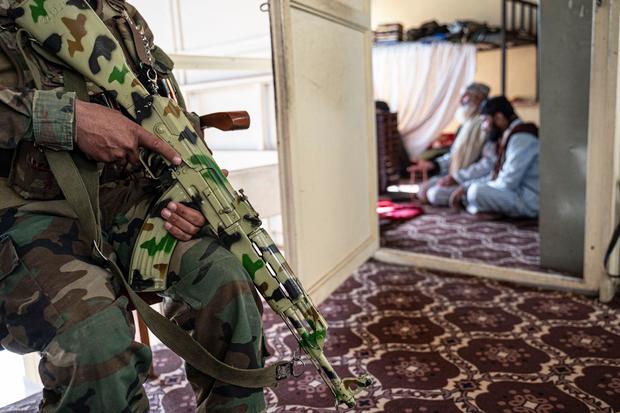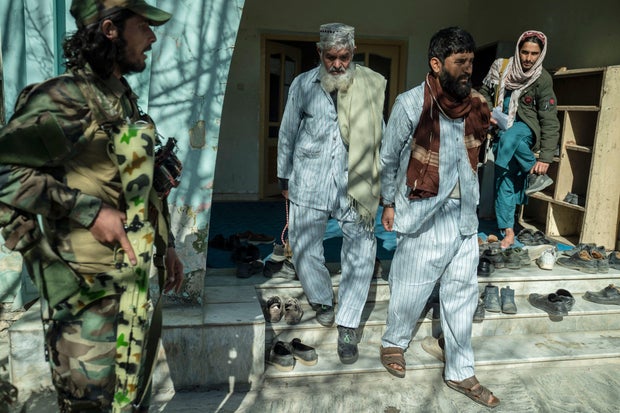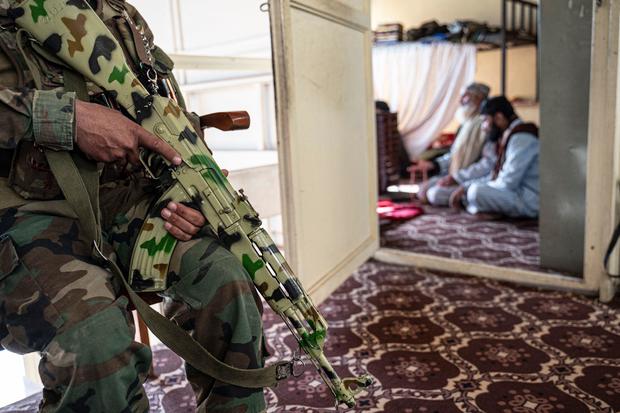The United Nations called on Afghanistan’s Taliban rulers Monday to halt all state executions, voicing its concern in a report that details public executions, stoning, flogging, and other types of corporal punishments carried out by the hardline Islamic group since it retook control over the country almost two years ago.
The report recorded various instances of physical punishment administrated by the Taliban authorities, such as lashing, stoning, different types of physical assaults, and compelling people to head shaving and stand in cold water.

WAKIL KOHSAR/AFP/Getty
According to the report from the U.N. Assistance Mission in Afghanistan (UNAMA), over the last six months alone, 58 women, 274 men and two underage boys were publicly lashed for various offenses, including adultery, running away from home, theft, homosexuality, drinking alcohol, forgery and drug trafficking. Those convicted received between 30 and 100 lashes as their official punishment.
- U.S. taxpayers helping to fund Afghanistan’s Taliban regime?
Similar punishments were doled out to 33 men, 22 women and two underage girls between Aug 15, 2021, when the Taliban stormed back to power as the U.S. and other foreign nations pulled their troops out, and Nov 12, 2022.
The report records two public executions since the Taliban’s takeover, one of them ordered by a judge in western Afghanistan and attended by Taliban ministers, according to UNAMA. The executed man was convicted of murdering another man in 2017, and the victim’s family carried out the punishment.

WAKIL KOHSAR/AFP via Getty Images
The other execution noted in the UNAMA report was a case of extrajudicial execution carried out by a district governor without due process.
“Corporal punishment is a violation of the Convention against Torture and must cease. The UN is strongly opposed to the death penalty and encourages the DFA (de facto authorities) to establish an immediate moratorium on executions,” UNAMA human rights chief Fiona Frazer said.
In response to the U.N.’s report, the Taliban’s Ministry of Foreign Affairs said Afghanistan followed Islamic rules and guidelines.
“Afghanistan follows the holy religion of Islam and Islamic principles; therefore, the laws are determined in accordance with Islamic rules and guidelines. In the event of a conflict between international human rights law and Islamic law, the government is obliged to follow the Islamic law.”
The Taliban regime has been condemned widely, including by the governments of other majority-Muslim nations and organizations, for its strict interpretation of Islam, including its bans on girls over the age of 12 going to school or university and on women working in the vast majority of professions.
Afghanistan’s Taliban-run Supreme Court announced last week that courts across the country had handed down a total of 175 death sentences since the summer of 2021, including 37 people sentenced to die by stoning.
Some of the punishments had already been carried out, but others were still pending implementation, according to the Supreme Court’s deputy, Abdul Malik Haqqani. The court did not detail the alleged crimes of the people who received the sentences.
Haqqani said the Taliban leadership had advised all the country’s courts to continue issuing death sentences and other corporal punishment in line with the group’s interpretation of Islamic Sharia law, but he stressed that all such sentences, “need careful study and consideration, and the orders will be implemented step by step after approval by the leadership council and the cabinet.”
